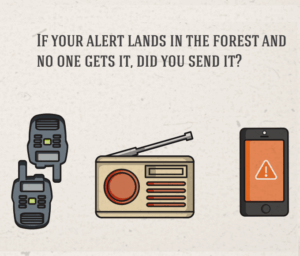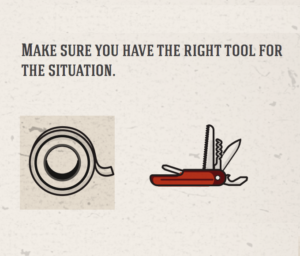5 Essentials of the Service Desk

IT major incidents have increased in both frequency and complexity over the last decade. In my previous blog post, I wrote that as security breaches, hardware failures and other issues worsen, our processes are often not up to the task.
Our firewalls and monitoring systems are better than they used to be. Our anti-virus defenses are more sophisticated. Our experts in IT are more skilled. So what’s the problem? We think it comes down to the speed, accuracy, and strategy of communications. The communications piece is lacking for many businesses because they lack five basic essentials.
To make my point, imagine you’re on your way to pick up your company’s CEO and her husband. You have a promotion depending on arriving on time. Just a few years ago, the car was a simple machine. The dashboard was an uncluttered landscape of a few dials. Today, it’s a miasma of lights and sounds that can be overwhelming. And what you don’t know is that your car is leaking oil. Major incident!
First Basic Essential: Rapid Engagement
Amid the lights telling you our airbag is engaged, your average speed and your current gas mileage, you might miss the oil light until it’s too late. You might wonder, what if you hadn’t skipped those auto shop classes in high school?
Anyway, you need to take care of this problem and contact a mechanic immediately. The longer you wait, the greater the risk you don’t make your pickup on time.
On the IT service desk, you want your communication platform to start the engagement with integrate with your major incident resolution manager immediately. A 2015 survey of IT professionals revealed that 60 percent require more than 15 minutes to identify who should respond to an IT issue.
Second Basic Essential: Intelligent Responses
The shop isn’t open yet so you visit your mechanic’s website and start filling out a contact form, but the basic exchange of information doesn’t allow you to indicate the urgency.
On the IT service desk, this can be a huge frustration when involving those people that are necessary to attack the problem. The notifications you send aren’t always actionable. When they are actionable, the available actions are often limited to Yes/No or Accept/Decline.
More intelligent and versatile response options allow service desk managers and resolution teams to share enough information to jumpstart the resolution process.
Third Basic Essential: Multi-Modal Support
You contact other auto shops, and the right technology is critical. They could easily miss an email or a text. If you walk in, you’ll probably find that everyone is on a phone. You see them – or at least their phones that cover a good majority of their face. People use their phones for work- such as Microsoft Teams and Slack, groceries, catching up with friends and sometimes, vigorously typing to make it seem like they’re busy when they’re just trying to avoid making eye contact with that one person they sort of know but not well enough so it’s just easier to type than have an awkward conversation (according to a friend). Some people even fall asleep with their phones in their hands – according to this same friend.
On the IT service desk, you need a system that will support all these various platforms, so that those who are on the go, are in the know. (I might have looked that up on my smartphone while actively avoiding someone I sort of know.)
Fourth Basic Essential: Integrations with Operations
Whether you call the mechanic at the first sign of car trouble or not until after the check engine light shows us on your dashboard could be the difference between being a quart low on motor oil or having a cracked head.
If you had checked your oil ahead of time, you could have avoided a trip to the mechanic at the most inopportune time.
On the IT service desk, early communication of minor issues can prevent them from becoming major issues. Most companies say they experience a major incident at least several times a year.
Fifth Basic Essential: Proactive Communication
Your CEO might understand that you had to go to the mechanic and would be late. She might even appreciate your checking the car before picking her up. But if you didn’t tell her what was going on and left her waiting and not knowing whether you were even coming, she probably wouldn’t be so forgiving.
On the service desk, failing to keep executives and other stakeholders informed can impact the companies’ reputation, public perception and loyalty to the company.
Have any more essentials in your service desk experience? Leave us a comment or tweet us at @xmatters_inc.
Complimentary Report
These essentials are the basis of a proper communication solution, which can minimize the chaos that comes with new, more complex issues.





